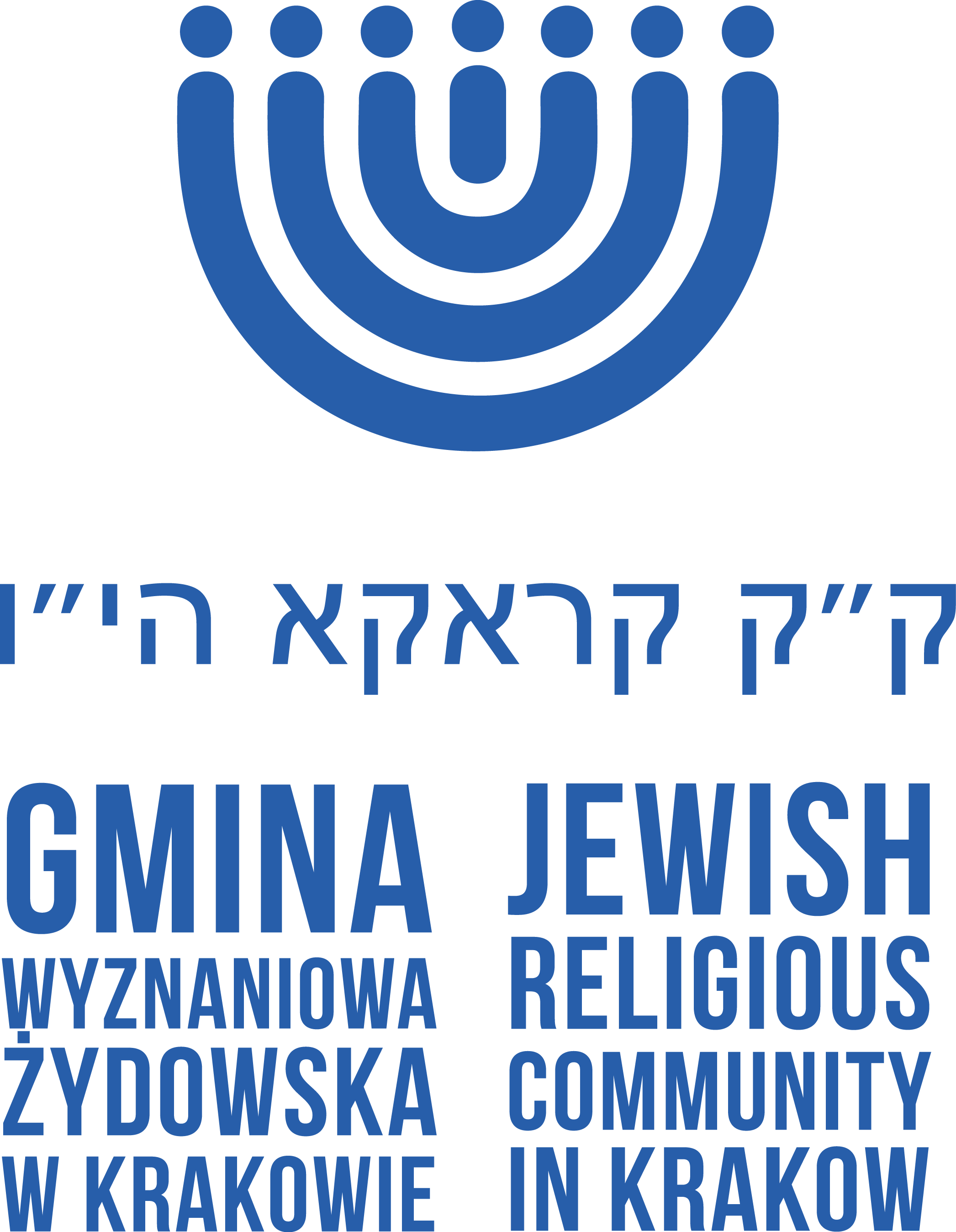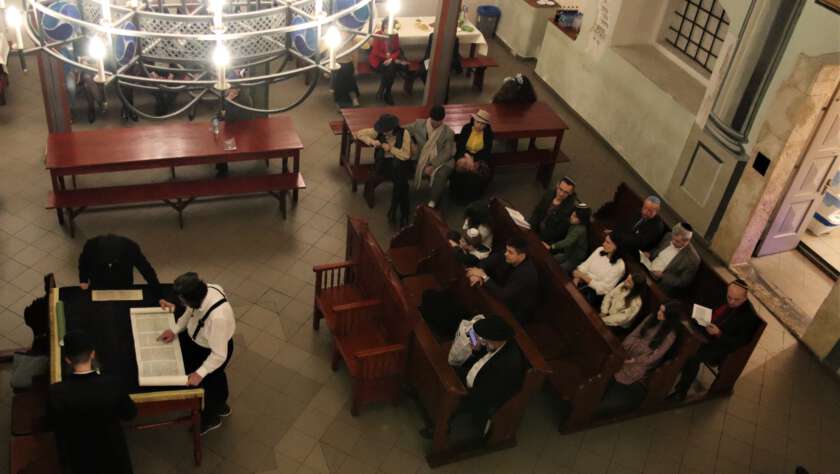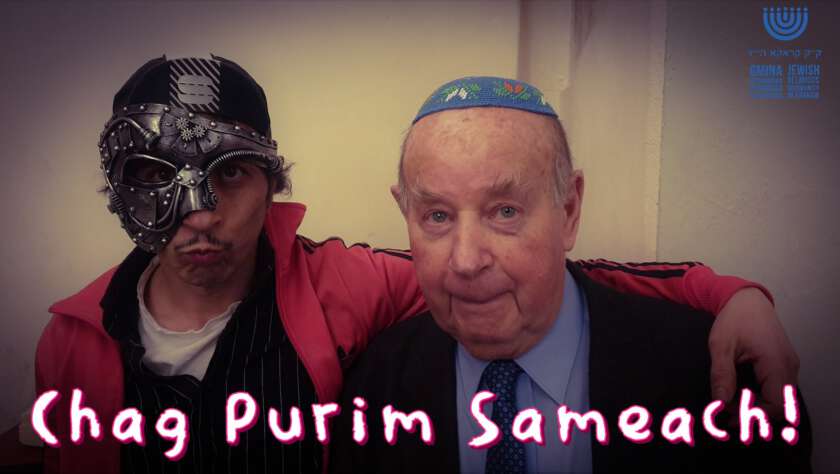Jerzy Gert, byname of Józef Gaertner, a conductor and a composer, a son of Henryk, was born on 31st March 1908. He got the musical preparation at his family home. Gert played the violin and the grand piano. He was a student of the Neues Wiener Conservatoire and Universität für Musik und darstellende Kunst where he got his education under the supervision of Hanns Eisler, Josef Polnauer, Arnold Schönberg as well as Alban Berg. After returning to Poland in 1933, Gert took up a job as a music director at a record company called ”Odeon” in Warsaw. What is more, he conducted the record company’s orchestra. He left for Lviv in 1939 where he worked as a conductor of the Lviv Philharmonic until 1941. Gert went into…
24th March marks the birthday of Mieczysław Pemper. Born in 1920 in Cracow, Pemper was remembered by Aleksander Skotnicki in Dziennik Polski in the 16th June 2011 issue. ”He came from an assimilated Jewish family. During the German occupation, he went through the Krakow getto first, followed by the camp in Płaszów, where he was hired as a secretary of Chief Amon Goethe. Pemper’s position allowed him to observe the violence and impunity of the guards, the labour camp and the concentration camp’s staff. Being Oscar Schindler’s secret collaborator, he contributed to saving over 1,000 Cracow residents of Jewish background . First, from the Lipowa 4 camp, followed by Brűnnlitz in Moravia. In 1946, after WWII, Mieczysław Pemper was a witness at the trial of Amon Goethe…
Józef Michał Rosenblatt, a councillor, lawyer, professor of the Jagiellonian University in Cracow, the son of Joachim and Karolina, née Einblid, was born on 19th March 1853 in Cracow. A graduate of St. Ann’s Gymnasium in Cracow and the Jagiellonian University at the Law Department. In 1876, Rosenblatt obtained his PhD title in Law. The government scholarship enabled him to participate in lectures and seminars in Berlin, Leipzig and Munchen. In 1877, after his return to Cracow , he obtained his postdoctorial degree and started his academic and didactic work on criminal law and criminal trial at the Jagiellonian University. Rosenblatt obtained the title of Associate Professor in 1884, only to become a Professor in 1893. Between 1877-1882, he worked at a law office, mosty as an…
A photoreport from the Purim Festival which took place at Kupa Synagogue on Wednesday evening. After a long break we finally got a chance to meet in a larger group in order to read the Book of Esther and to spend some time together. We were pleased to have the Community members as well as invited guests including Ukrainian Jewish refugees.
Chag Purim Sameach!
Dawid Kahane, born on 15th March 1903 in Grzymałów, was a rabbi with the rank of lieutenant colonel of the Polish Army and a chairman of The Supreme Religious Council in Poland. He came from a family of rabbis who raised him in traditional religious spirit. Kahane studied in Berlin, Wrocław and Vienna, where he obtained his PhD title in Philosophy. He was a student of Israelitisch-Theologische Lehranstalt, too. After his return to Poland, he settled in Lviv. During the war, Dawid Kahane was a member of the Lviv rabbinate, while working at the religious department of Judenrat at the same time. He was a prisoner of the Janovski camp in Lviv. Kahane was saved thanks to Andrzej Szeptycki, the Greek-Catholic Metropolitan. After the war, he…
On 13th March 2022, which marked the 79th anniversary of the liquidation of the Krakow ghetto, Tadeusz Jakubowicz, Chairman of the Board together with the representatives of the Jewish Religious Community in Krakow, laid flowers in places commemorating the extermination of Krakow Jews. The following guests were in attendance: Mayor of Krakow, professor Jacek Majchrowski, Chairman of the Board of the Jewish Religious Community in Katowice, Włodzimierz Kac, President of the Roma Association in Poland, Roman Kwiatkowski, Manager of the Krakow branch of the Institute of National Remembrance, habilitated doctor Filip Musiał as well as numerous Krakow residents. We are grateful for everyone’s presence on that day.
On Saturday, 13th March 1943, the Germans began the final liquidation of the Krakow ghetto. First, the ghetto was cordoned off by SS divisions, Police, Sonderdienst and the Blue police. Jews from the A ghetto were supposed to walk to Płaszów, while those from ghetto B were to be killed, despite being promised a relocation to Julag I. During the two-day operation, the SS men murdered a few hundred people located in shelters, hospitals and orphanages. Their corpses were transported to Płaszów, where other people, considered ”useless”, were being shot dead. The official total number of 2,000 victims killed in both, the ghetto as well as in Płaszów, does not seem to be exaggerrated, as the original number of 8,000 people who arrived at the camp increased…
12th March 1682, marked in history as ”der grosjer Schülergeläuf”, was a day of serious anti-Jewish riots in Cracow. Janina Bieniarzówna thoroughy described these events in Volume 2 of Dzieje Krakowa (The history of Cracow) as well Majer Bałaban, in Volume 2 of Historia Żydów w Krakowie i na Kazimierzu 1304-1868 (The history of Jews in Cracow and in the Kazimierz District 1304-1868) It all stemmed from a Szachna who was sentenced to death by hanging, as a consequence of buying stolen ecclesiastical silverware. After executing the sentence, a group of students attacked and severly beat the Jews. Soon after that, other anti-Jewish riots broke out. The Jews took shelter in the Szara tenement house, while students, supported by local thugs, tried to break in there. As…











